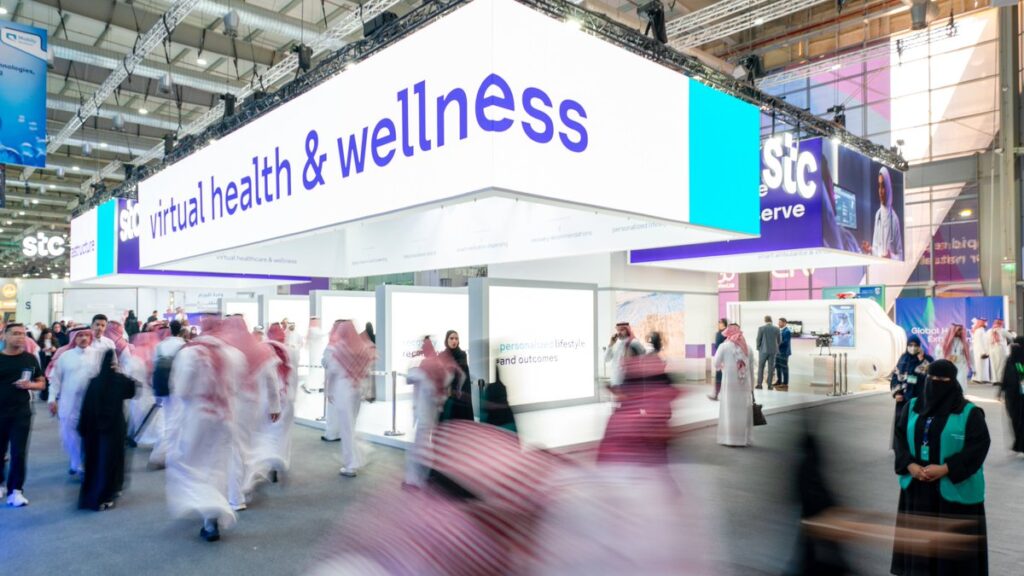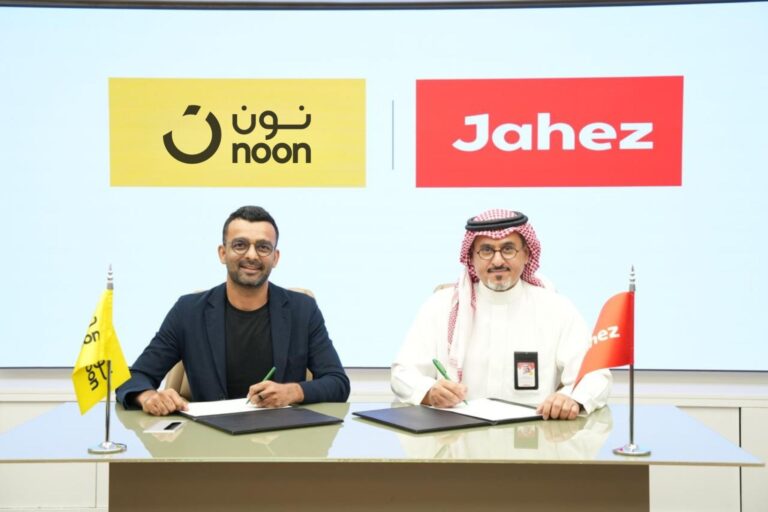At the Global Health Exhibition 2025, the future of healthcare felt more like Silicon Valley than a hospital ward. Rows of LED screens replaced the usual hum of hospital machinery, and the talk wasn’t about new surgical tools or devices but about AI, 5G, and the infrastructure that will hold together the Kingdom’s digital health ambitions. Saudi Arabia, intent on leading the region’s healthcare transformation, made it clear: the next frontier in medicine isn’t physical. It’s digital.
Over four days at the Riyadh Exhibition and Convention Center, more than 2,000 exhibitors and 500 speakers representing over 60 countries converged under one theme data-driven healthcare. The Ministry of Health opened the event with a headline announcement of SAR 125 billion, or around $33 billion, in fresh investment commitments for digital health infrastructure, predictive analytics, and artificial intelligence. The figure fits within the government’s Vision 2030 Digital Health Strategy, which aims to establish a unified health data exchange system by the end of the decade.
Hospitals across the Kingdom showcased their digital reinventions. King Faisal Specialist Hospital & Research Centre presented an AI-powered diagnostic engine capable of reading radiology scans in seconds, while King Saud Medical City displayed its patient monitoring network linking wearable sensors to real-time dashboards. Dr. Sulaiman Al Habib Medical Group demonstrated a predictive care model that uses data to identify high-risk patients before symptoms escalate. The shift was clear care is moving from reactive to proactive, and data is becoming the most valuable medical asset.
Telecom leaders stc and Mobily stood out as the digital backbone of the transformation. stc introduced its Digital Health Cloud, hosted on its Center3 data infrastructure and built under SDAIA’s national data sovereignty framework. “We’re building the backbone of Saudi healthcare’s digital economy,” said an stc executive. “In this new era, data moves faster than patients.” Mobily, meanwhile, demonstrated edge computing and 5G pilots for “smart hospitals.” In one demo, an ambulance transmitted live ECG readings to a hospital before arrival, cutting triage time by nearly a third. Another showed IoT-enabled medical devices uploading data instantly to clinical dashboards, offering a glimpse into real-time, connected care.

Artificial intelligence dominated the agenda. GE HealthCare, Philips, and Siemens Healthineers showcased AI systems that can detect early-stage cancer, cardiac disease, and neurological disorders with unprecedented precision. Microsoft and Amazon Web Services (AWS) joined the conversation, highlighting new healthcare data platforms designed to handle national-scale analytics. Local innovators from The Garage, the Ministry of Communications and Information Technology’s deep-tech hub, displayed Arabic-language clinical chatbots and AI models trained on Saudi patient datasets. “The challenge isn’t building the technology,” said one Saudi founder. “It’s building confidence in it.”
Government entities are already integrating these tools into national systems. NUPCO, which manages the Kingdom’s medical supply chain, introduced AI-driven forecasting tools that can predict medicine shortages before they occur. “AI has moved beyond theory,” said COO Fahad Albuthi. “It’s now embedded in procurement and logistics.” The Health Holding Company unveiled its AI-based Diabetic Command Center, which monitors thousands of patients across the country and automatically alerts medical teams when readings fluctuate. “We’re no longer waiting for patients to come to us,” said Chief Medical Officer Dr. Saad Al Battal. “The system comes to them.”
Cloud giants deepened their footprint in the Kingdom. Oracle, Google Cloud, Microsoft Azure, AWS, and Huawei Cloud all announced new partnerships with Saudi hospitals to accelerate the digitization of medical records, imaging, and telehealth platforms. King Abdullah Medical City partnered with Oracle to migrate its imaging systems to a secure local cloud, while King Fahd Medical City teamed with Google Cloud to analyze patient data and streamline hospital operations. The Ministry of National Guard Health Affairs revealed predictive maintenance programs for medical equipment to ensure continuous uptime across its facilities.

The innovation pipeline was on full display at The Garage’s startup pavilion. Robotics startups showcased autonomous hospital delivery bots, while analytics firms unveiled population health dashboards that can map national disease trends in real time. The Ministry of Investment announced new accelerator funds and incentives to attract global investors to Saudi Arabia’s health-tech scene, emphasizing that future intellectual property should be “made in the Kingdom.”
The digital health revolution unfolding in Riyadh isn’t happening in isolation. According to Frost & Sullivan, global spending on digital health is expected to reach $800 billion by 2030, growing by roughly 20 percent each year. Saudi Arabia’s growth curve is even steeper. Healthcare IT spending rose by 23 percent year-on-year, driven by both public and private sectors, while nationwide 5G coverage has surpassed 50 percent among the highest rates globally.
For all the optimism, scaling remains a challenge. Integrating data across hundreds of hospitals and millions of patients requires shared standards, unified systems, and regulatory alignment. “Technology is not the hard part,” said a chief data officer from a Riyadh hospital. “The real challenge is speaking the same language across institutions.” Still, there was a sense that the Kingdom is past the experimentation phase. Deals were signed, systems went live, and for the first time, “interoperability” was more than a buzzword, it was a blueprint.
As the final sessions wrapped up, the tone was confident, almost electric. Saudi Arabia is not just digitizing healthcare; it is engineering the software stack of a new national health system. The cloud, AI, and 5G are no longer promises, they are part of the country’s operational fabric. The Kingdom’s healthcare transformation is already online, intelligent, and accelerating, powered by partnerships that blur the line between tech companies and hospitals.
The lights dimmed at the Riyadh Exhibition and Convention Center, but the momentum did not. In a region once defined by oil, Saudi Arabia’s next great export may be health technology coded, connected, and built to heal.




Global Health Exhibition 2025 wraps up in Riyadh with a $33B leap toward digital healthcare